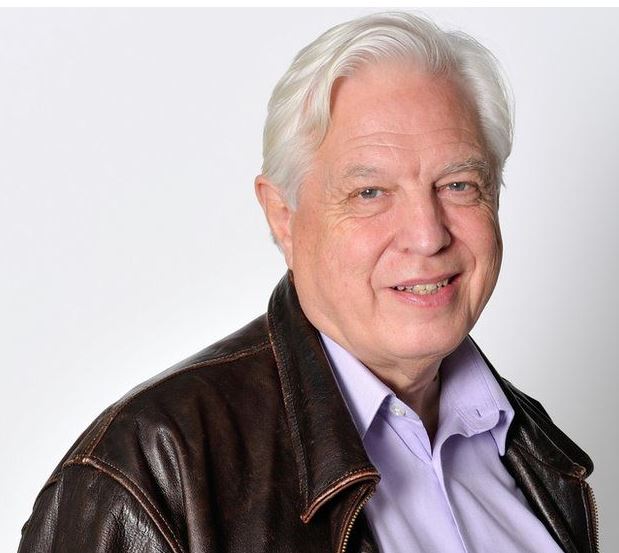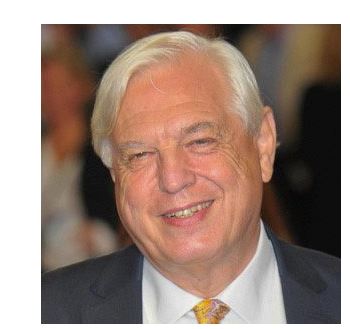John Simpon Biography
Simpon’s real name is John Cody Fidler-Simpson. He is a British foreign journalist and BBC News international affairs editor. He has spent his whole career with the BBC, reporting from over 120 countries, including thirty conflict zones, and interviewing numerous international leaders.
How old is John Simpon? – Age
Simpson was born on 9 August 1944 in Cleveleys, England. He is 77 years as of 2021.
Where did John Simpson go to school? – Education
He attended Dulwich College Preparatory School and St Paul’s School before enrolling in Magdalene College, Cambridge, where he studied English and served as the editor of Granta magazine. He was a member of the Magdalene University Challenge squad in 1965. Simpson began working as a trainee sub-editor at BBC radio news a year later.
Simpson – Family
Simpson was born in Cleveleys, Lancashire, but was moved the next week to his mother’s “bomb-damaged house in London.” In his story, he claims that his father was an anarchist. He grew up in Dunwich, Suffolk, for 10 years.
John Simpson Wife
Simpson has two children, Julia and Eleanor, from his first marriage to American Diane Petteys. In 1996, he married South African television producer Dee (Adele) Kruger. In January 2006, they welcomed a son called Rafe. Simpson, whose grandmother was born in Ireland, holds both British and Irish citizenship; he returned to London in 2005 after residing in Ireland for several years.

What is John Simpson Salary?
Simpson’s salary is currently ranging between € 150,000- € 199,999 annually.
Simpson Net Worth
Simpson’s net worth is $6million.
Simpson Career
Simpson became a BBC reporter in 1970. Early in his career, the then prime minister Harold Wilson, angered by being asked whether he was about to call an election, punched Simpson in the stomach. Simpson was the BBC’s political editor in 1980-1. He presented the Nine O’Clock News in 1981–82 and became diplomatic editor in 1982. He had also served as a correspondent in South Africa, Brussels, and Dublin. He became BBC world affairs editor in 1988 and presented an occasional current affairs program, Simpson’s World. In November 1969 he interviewed the exiled King of Buganda, Mutesa II, hours before death in his London flat from alcohol poisoning. The official cause was suicide but some suspected assassination. Simpson told the police the following day that the king, a fellow graduate of Magdalene College, Cambridge, had been sober and in good spirits, but this line of inquiry was not pursued. He traveled back from Paris to Tehran with the exiled Ayatollah Khomeini on 1 February 1979, a return that heralded the Iranian Revolution, as millions lined the streets of the capital. In 1989 he avoided bullets at the Beijing Tiananmen Square massacre. Simpson reported the fall of the Ceauşescu regime in Bucharest later that year. He spent the early part of the 1991 Gulf War in Baghdad, before being expelled by the authorities. Simpson reported from Belgrade during the Kosovo War of 1999, where he was one of a handful of journalists to remain in the Yugoslav capital after the authorities, at the start of the conflict, expelled those from NATO countries. Two years later, he was one of the first reporters to enter Afghanistan in 2001, famously disguising himself by wearing a burqa, and subsequently Kabul in the US-led invasion of Afghanistan. Simpson was hunted by Robert Mugabe’s forces in Zimbabwe. In 2002 he had an interview with the Dutch politician Pim Fortuyn just four days before his assassination. Fortuyn was not happy with Simpson and his questions and so sent him away just five minutes after the start of the interview. He was the first BBC journalist to answer questions in a war zone from internet users via BBC News Online. While reporting on a non-embedded basis from Northern Iraq in the 2003 Iraq war, Simpson was injured in a friendly fire incident when a U.S. warplane bombed the convoy of American and Kurdish forces he was with. The attack was caught on film: a member of Simpson’s crew was killed and he himself was left deaf in one ear. Simpson being questioned about his career by fellow journalists at London’s Frontline Club, October 2007. Simpson has freely admitted to using hallucinogenic drugs offered to him by locals in various jungles of the world. This prompted jibes from other panelists when Simpson appeared on BBC Television’s topical quiz show Have I Got News For You. On his first appearance, Simpson revealed that one hallucination involved a six-foot goldfish putting its flipper around his shoulders while wearing dark glasses and a straw hat. In 2008 and 2009 Simpson took part in a BBC program called Top Dogs: Adventures in War, Sea, and Ice. It saw Simpson unite with fellow Britons Sir Ranulph Fiennes, the adventurer, and Sir Robin Knox-Johnston, the round-the-world yachtsman. The team went on three trips, experiencing each other’s adventure field. The first episode, aired on 27 March 2009, saw Simpson, Fiennes, and Knox-Johnston go on a news-gathering trip to Afghanistan. The team reported from the Khyber Pass and the Tora Bora mountain complex. The three also undertook a voyage around Cape Horn and an expedition hauling sleds across the deep-frozen Frobisher Bay in the far north of Canada. During the 2011 Libyan civil war, Simpson traveled with the rebels during their westward offensive, reporting on the war from the front lines and coming under fire on several occasions. In 2016 Simpson presented a Panorama special, ‘John Simpson: 50 Years on the Frontline‘, revisiting the people and places that have impacted on him most, revealing his thoughts on the challenges for the future. In 2018 he described how a previous head of BBC News had recently tried to force him out of the BBC. “I wasn’t the only one: he did the same to several eminent broadcasters, on the grounds that the news department was clogged at the top by the aged. I was unsighted by being assured regularly how wonderful my contribution to the BBC was. ‘I’d be distraught if you left’, he said.”
Simpson awards
Simpson has received various awards, including a CBE in the Gulf War honors list in 1991, an International Emmy for his report for the BBC Ten O’Clock News on the fall of Kabul, the Golden Nymph at the Cannes Film Festival, a Peabody award in the US, and three BAFTAs.
He was appointed an honorary fellow of his old college at Cambridge, Magdalene, in 2000, and became the first Chancellor of Roehampton University in 2005.
Various universities have awarded him honorary doctorates: De Montfort, Suffolk College at the University of East Anglia, Nottingham, Dundee, Southampton, Sussex, St Andrews, Exeter, and Leeds.
He has received the Ischia International Journalism Award and the Bayeux-Calvados Award for war correspondents.
In June 2011 he was made a Freeman of the City of London.
Simpson was honored by the City of Westminster at a Marylebone tree planting ceremony in May 2012.
